Not a G-spot, Not a Hotspot, but Migration Management Support Teams
Adelina Marini, September 25, 2015
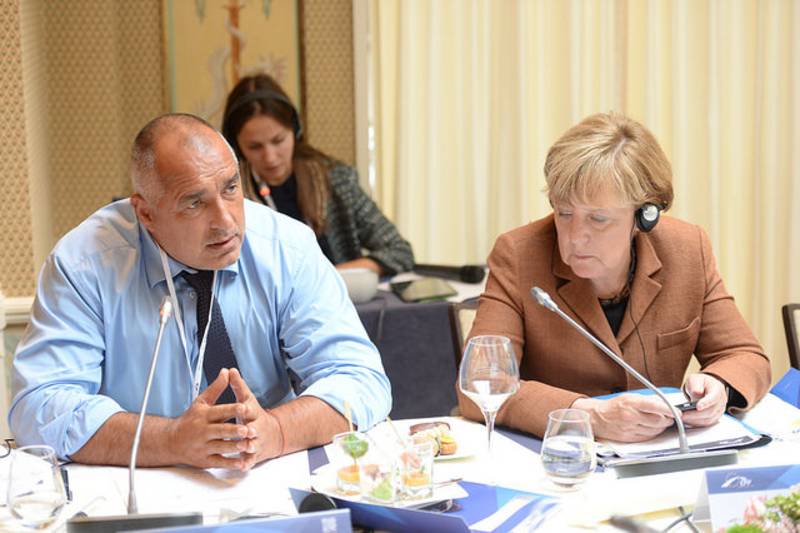 Take it easy, no one understood exactly what a hotspot is. It is not only Prime Minister Boyko Borissov. This was admitted by EU Commissioner for Migration, Home Affairs and Citizenship Dimitris Avramopoulos himself on Wednesday noon. At a press conference after the end of the European Commission (College) meeting he said that over five months he had been trying to explain what those “hotspots” really were. “To be frank with you I don’t know who invented this term but it was a mess,” said Commissioner Avramopoulos, veering significantly from the speech prepared for him beforehand.
Take it easy, no one understood exactly what a hotspot is. It is not only Prime Minister Boyko Borissov. This was admitted by EU Commissioner for Migration, Home Affairs and Citizenship Dimitris Avramopoulos himself on Wednesday noon. At a press conference after the end of the European Commission (College) meeting he said that over five months he had been trying to explain what those “hotspots” really were. “To be frank with you I don’t know who invented this term but it was a mess,” said Commissioner Avramopoulos, veering significantly from the speech prepared for him beforehand.
From a hotspot to a G-spot
The Bulgarian public woke up highly agitated on Thursday morning as a result of the “Chinese Whispers” between Brussels and Sofia. The drama was caused by getting lost in translation at German Chancellor Angela Merkel’s press conference after midnight, when she mentioned Bulgaria in her opening statements in the context of hotspots. Her words were that there was wide consensus that hotspots are to be established in those countries which are at the EU’s outside borders, “like Italy, but also Bulgaria, which is not a part of Schengen but has a border with Turkey”. Later Ms Merkel explained in an answer to a journalist’s question that Bulgaria pointed out that it is bordering Turkey, that it is under severe refugee pressure and that during the meeting all were open minded.
"We said if Bulgaria wishes to set up such a hotspot, it is going to get the same kind of support from the EU institutions and agencies as for example Greece and Italy. But it is not as if we wanted to impose something on Bulgaria, but Bulgaria itself said we have a problem why not us and it’s quite arguable", added the German Chancellor. These words were interpreted in Sofia as if Bulgaria wanted to have such hotspots established on its territory. In an attempt to explain exactly what he wanted to say during the meeting Prime Minister Boyko Borissov proved that he is one of those that Mr Avramopoulos meant when admitting some are confusing hotspots with reception centres. At a conference on the refugee problem Mr Borissov says that Bulgaria has long had such hotspots, having reception centres in mind.
What is a hotspot anyway?
The idea for it came up in the Commission’s agenda on migration, proposed in May. This, according to the EC, is not so much a place, but an approach. It is about personnel and resources of the European Asylum Support Office (EASO), the European border agency Frontex, Europol, and the European agency for judicial cooperation Eurojust working together with authorities in the front-line states “to meet requests from front-line Member States for assistance by the institutions, the agencies and other Member States in order to ensure identification, registration and fingerprinting of migrants“. This means all incoming refugees are to be sheltered at reception centres in the front-line countries – Greece and Italy have been identified as such – and there all procedures are to be implemented to discern between migrants and refugees. After proving their status, refugees are distributed according to the quotas agreed on by Internal Ministers on Tuesday.
So far, the agreement covers only 160 000 people over the next two years, but there is more and more talk that the number should be raised proportional to the pressure on front-line states. In May, when the EC presented its agenda on migration, the hotspots in Italy had already been identified – Pozzallo, Porto Empedocle, Trapani, and Lampedusa. These particulars were yet to be clarified for Greece. In other words, the implementation of the hotspot concept, or using the new term, Migration Management Support Teams, should stop the leaking of tens of thousands of unregistered refugees into the EU and Schengen.
Leaders of the member states confirmed the agreement reached on Tuesday and stressed at their informal meeting on Wednesday evening that one of the priorities is fulfilling the requests of front-line states for aid in the establishment of the hotspots by November 2015. Commissioner Avramopoulos was much more specific on Wednesday noon by saying that the Migration Management Support Teams will be fully functioning by the end of the week. For now, Greece and Italy are the only ones that have requested to be a “hotspot”. Croatia, for example, absolutely refused. Prime Minister Zoran Milanović made it very clear last Friday that he will not allow his country to become a “collection point” for refugees. In one version of the refugee relocation proposal there was mention of Hungary, but Viktor Orbán’s government also refused, so from a front-line state Hungary turned into a country that has to accept its quota – 988 people from Greece and 306 from Italy.
Greece, Italy, and Bulgaria are at the outposts of the EU, with the first two Schengen members, while Bulgaria is not, but wants very much in this situation to be accepted as soon as possible. Greece is the entrance into Europe for the refugees going through Turkey and Italy is the door for the Mediterranean route. At this point Bulgaria is not exposed to such great pressure like Italy and Greece, who for years now have been subjected to a growing migratory pressure. Because of the extended lack of understanding from member states, who had until recently been sheltered from the migration flow, Greece and Italy began closing an eye to European legislation and let through and even aid the passage of refugees further into the EU and Schengen without even registering them. The Greek government of Alexis Tsipras even made open threats that they will “open the valve” if their demands 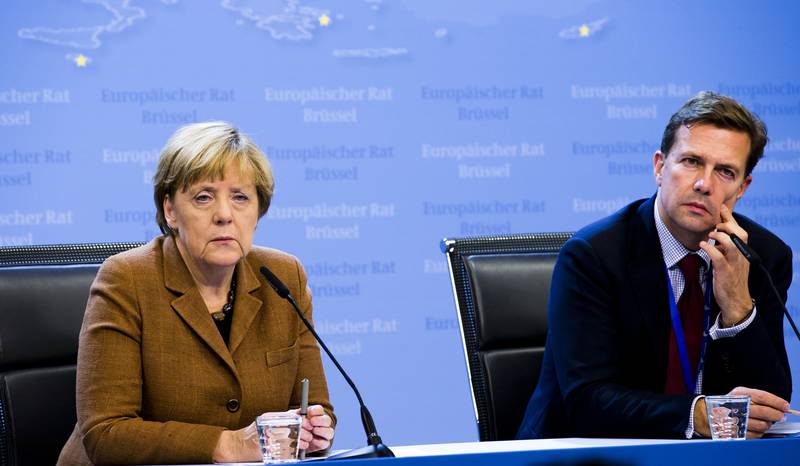 for writing off part of the Greek public debt are not met and requests for further restrictions of budget spending are not withdrawn.
for writing off part of the Greek public debt are not met and requests for further restrictions of budget spending are not withdrawn.
Italian Prime Minister Matteo Renzi has not made open threats, but in June he burst out in the European Council on the subject of resistance to the quota distribution – If this is your European Union, no thanks, he said to his colleagues according to Italian journalists. Years ago, however, there were conflicts between Italy and France on the leaking of North African migrants into the core of the EU. Now that the problem belongs to many member states, gradually the search for a common solution has begun. By all accounts, however, too much hope is placed on the “hotspots”, renamed into Migration Management Support Teams. According to French President François Hollande, “the Dublin Regulation might be revised at some point”, meaning those changes will not be rushed.
So, the country that decides it wants to be a hotspot will have to live with the thought that for too long will thousands of refugees reside on its territory, refugees that need to be processed and distributed, or returned to the first country that is safe for their life. Certainly, all of this will be happening with European aid – both financial and logistic.
Translated by Stanimir Stoev
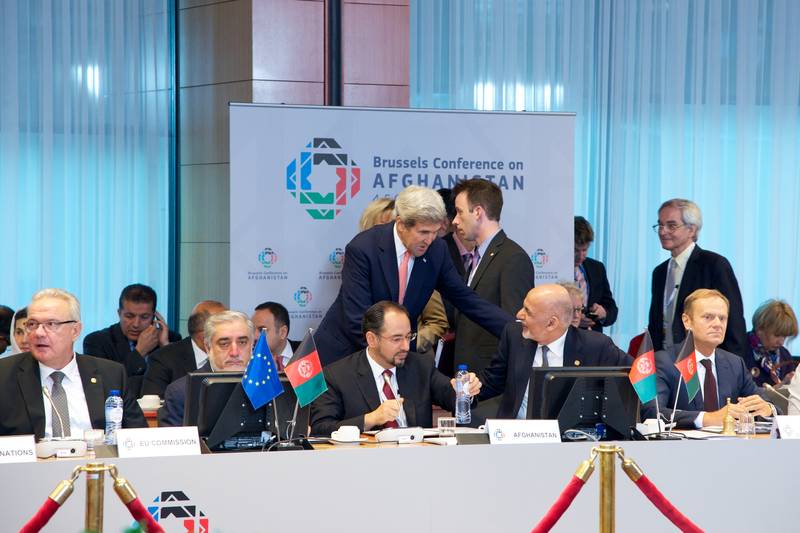 | © Council of the EU
| © Council of the EU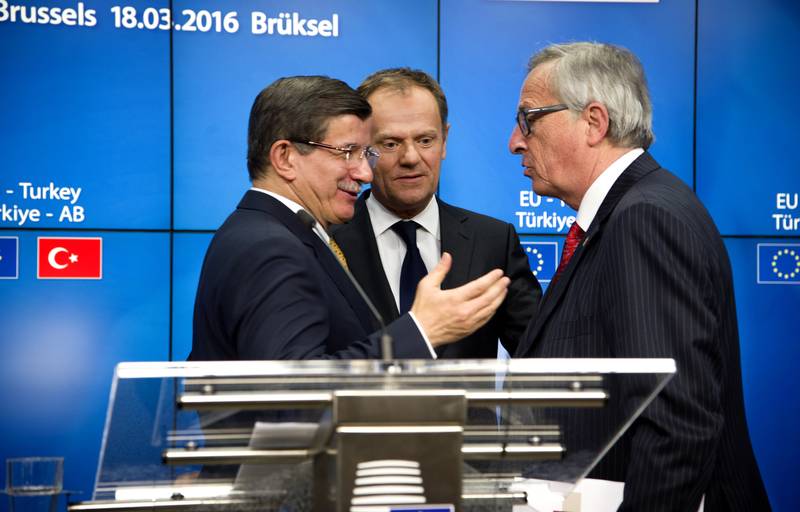 Davutoglu, Tusk, Juncker | © Council of the EU
Davutoglu, Tusk, Juncker | © Council of the EU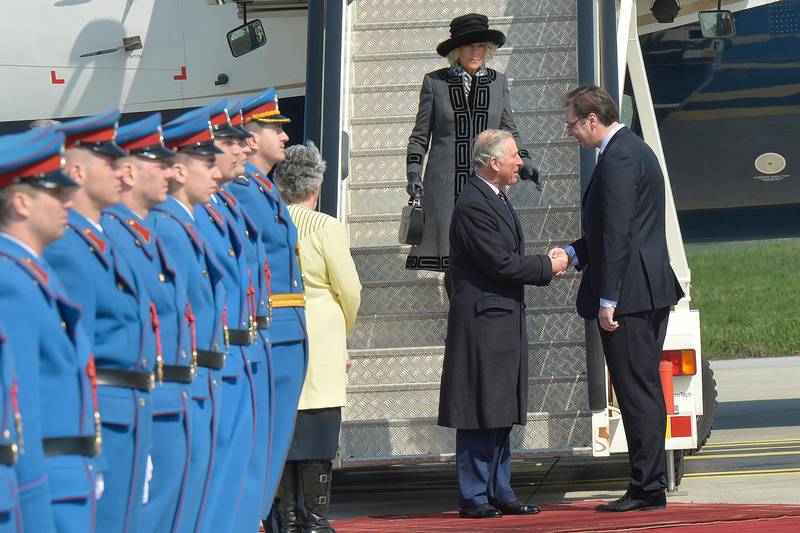 | © Vlada RS
| © Vlada RS